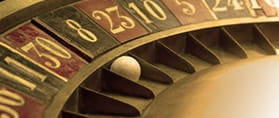The Labouchere System – Analysis & Review
Gamble Responsibly
- Only gamble with money you can afford to lose.
- Set spending limits and stick to them.
- Avoid gambling when emotional or under the influence.
- Only bet on familiar gambling games after you learn their rules.
- Contact problem gambling organizations if concerned about gambling habits.
The Labouchere system is a bit more complex when compared to Martingale and Fibonacci, for example, but you can master it with just a bit of practice. In its core, it’s an easy-to-use cancellation system that can be used with almost every casino game out there.
How the Labouchere Strategy Works
 Henry Labouchere(1831 – 1912)
Henry Labouchere(1831 – 1912)The Labouchere is a strategy devised to work with even bets – this means that you can use it when betting on Red/Black, Even/Odd, and 1-18/19-36. Using it to play on the inside bets can be rather risky, since the numbers don’t add up and you might end up losing a lot. You need to bet on something with around 50% success chance.
If you want to use the Labouchere system, first you have to decide how much you want to win. Ready? Now, separate the figure in a few smaller numbers that add up to your goal. Here is an example of how your sequence might look if you want to win £10 in total.
Remember – the way your sequence goes is entirely up to you. You determine the amount of money you want to eventually win and the way you split it up along the sequence. When you start playing the actual game, simply take the leftmost and rightmost number from your sequence and add them together. This is how much you will bet for the spin. In our example above, we will need to bet £2 for our first spin.
If you manage to win the bet, cross out the numbers from the sequence you just used – since you managed to win a part of your goal. In our example, if we won the bet (£2), our sequence would look like this:
Now, for the next round, we would use the new leftmost and rightmost numbers to bet – in this case, 2 + 1 = 3. You repeat the whole process until you cross out all numbers. At this point, you have completed your objective and won the amount you set out to win. Of course, nothing stops you from creating a new sequence and starting again.
If, however, you manage to lose the bet, you shouldn’t cross out any numbers. Instead of that, you simply add the number that you just bet to the rightmost side of the sequence. Now you have to include it in your bet, since you have to make up for the money you just lost. If we lost the first bet in our example, our sequence would look like this.
This is how the Labouchere strategy goes. Once you get the hang of it, it’s pretty simple to execute and follow. Just don’t forget to perform the two main actions:
- Always cross out the numbers on the left and right side after a win
- Don’t cross out any numbers and add the number you’ve just bet to the right side of the sequence after a loss
| Round | Sequence | Outcome | Profit |
|---|---|---|---|
| Round 1 | 1 – 2 – 3 – 4 – 5 | Win | 6 |
| Round 2 | 2 – 3 – 4 | Loss | -6 |
| Round 3 | 2 – 3 – 4 – 6 | Win | 8 |
| Round 4 | 3 – 4 | Win | 7 |
| Total Profit | 15 | ||
Let’s take a deeper look at the system and determine the advantages and disadvantages of this style of play.
What Is Good About This System
The Labouchere system is really neat and organised – if you don’t mess it up yourself, the numbers always add up nicely and give you a sense of fulfilment. If you win as much as you lose, you will surely be at a profit if you follow the sequence correctly. And, of course, if you don’t hit a huge losing streak mid-game.
This system has some similarities with the Martingale strategy, but the progression is not nearly that steep. Losing streaks are not such a big deal when using the Labouchere – after all, you are not doubling your bet every time you lose. This makes the system pretty manageable for most players. Check out the best USA online casino websites listed here where you can learn how to play roulette with this strategy.
Issues with the Labouchere Strategy
 The problems with the Labouchere system are quite similar to what other roulette strategies suffer from. If you hit a losing streak, your sequence can become really, really long. You will eventually experience trouble keeping up, and unless you hit a great winning run, you will not be able to cross out all your numbers.
The problems with the Labouchere system are quite similar to what other roulette strategies suffer from. If you hit a losing streak, your sequence can become really, really long. You will eventually experience trouble keeping up, and unless you hit a great winning run, you will not be able to cross out all your numbers.
This is all because of the inherent house edge that the game of roulette has. Labouchere system is great for keeping up tabs on where you are exactly in the win/lose ratio and how close you are to being at a profit, but it does nothing to tip the scales in your favour when it comes to odds. In the long run, the casino will always end up having the upper hand – but this doesn’t mean that you can’t make some good games and win a certain amount of money. Keep in mind that playing at the best online roulette UK casinos will help you improve your gambling skills a lot.
Variations & Modifications
The Labouchere strategy is quite flexible – once you get the hang of it and play it comfortably, you can start getting into the various modification that are out there, and even devise some of your own. We will show you some of the more popular variations of this classic betting system.
Modifying the Initial Sequence
As we previously stated, the initial betting sequence solely depends on you. Depending on the way you create it, it might have a big influence on the overall game. If you decide to go for high numbers and a long sequence, you will undoubtedly have more profit after each successful completion. However, your bets will have the potential of escalating really fast and the game will be more dangerous.
There is an exceptionally safe sequence that you can try out – it’s known as the Johnson progression. The initial betting sequence for it looks like this:
Your initial bet is 1, and if you lose, your next bet will also be 1. This is a really interesting variation that is worth exploring in a separate article.
Splitting When Losing
As you already know, in the worst case scenario, a losing streak can make your bets absurdly high. If you don’t want to play with such high stakes and avoid potential catastrophic losses, there is a way to mitigate the situation using the Labouchere strategy. Let’s say that after a few very bad games, your sequence looks like this.
25 – 29 – 37 – 40 – 58 – 62 – 79
Total: 330
You can easily transform this sequence into several separate sequences, which you can then follow one by one. They can be whatever you like, as long as they all add up to the sum you had in your original sequence. For our example, we can create 3 safe sequences that will not cause us to bet high, while still giving us the chance to reach our goal.
10 – 15 – 20 – 25 – 30 – 35 – 40 – 45
Total: 220
15 – 15 – 15 – 15
Total: 60
5 – 10 – 15 – 20
Total: 50
After creating those, we just start betting with the first one. Once we complete it, we would move on to the rest, and after they are done, we will start with a brand new sequence. As you can see, the numbers in the three new sequences are nowhere as scary as they were in the main one.
The Reverse Labouchere
The Labouchere system is based around increasing the bets when you lose. A couple of people with nothing better to do actually designed a Reverse Labouchere system – increasing the bets when you win. Here is how it works:
- If you win, add the sum of the bet at the end of the sequence
- If you lose, erase the numbers you bet
By using this system, you will lose very, very small amounts of money. If somehow the wheel turns in your favour and you manage to win twice as many games as you lose, you can potentially win an amazing amount of money. Sadly, the house edge rarely lets that happen.
Labouchere Is Great, but Don’t Expect Wonders
 To summarise – the Labouchere system does a good job at setting up and organising your game – but not much else. If you expect some magical solution that will turn the odds of the game in your favour, you are in for a disappointment. But, for what it’s worth, it is a good way to tease your brain a bit, since it’s a lot more interactive than your average roulette strategy. On top of all that, it can be really fun to play. Crossing out numbers and getting closer to your goal adds a new, surprisingly enjoyable dimension to the game of roulette. We highly recommend the Labouchere strategy – but don’t expect any miracles to happen while using it.
To summarise – the Labouchere system does a good job at setting up and organising your game – but not much else. If you expect some magical solution that will turn the odds of the game in your favour, you are in for a disappointment. But, for what it’s worth, it is a good way to tease your brain a bit, since it’s a lot more interactive than your average roulette strategy. On top of all that, it can be really fun to play. Crossing out numbers and getting closer to your goal adds a new, surprisingly enjoyable dimension to the game of roulette. We highly recommend the Labouchere strategy – but don’t expect any miracles to happen while using it.
Written by: Luke Holmes

